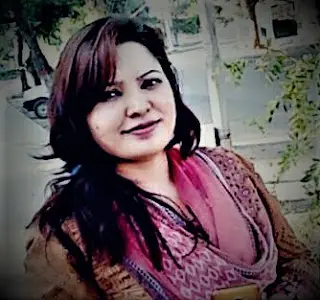Very Sad Poetry a Deep Dive into the World of Heartbreak and Healing
Sadness is a universal emotion, and poetry has long been a medium to express it. Very Sad Poetry captures the essence of heartbreak, loss, and despair in a way that resonates deeply with readers. Whether you’re seeking solace in words or simply appreciating the beauty of melancholic verses, this genre of poetry offers a profound connection to the human experience. In this article, we’ll explore the world of Very Sad Poetry, and its significance, and answer some frequently asked questions about this emotional art form.
Very Sad Poetry | Bastar, Takiya, Afsardah Hay
بستر، تکیہ، اَفسردہ ہے
میرا کمرہ اَفسردہ ہے
bastar, takiya, afsardah hay
mera kamarah afsardah hay
پُھول کھلے ہیں لیکن دیکھو
مَنظر سارا اَفسردہ ہے
phool khale hen lican dekho
manazr sara afsardah hay
اِتنا تو اِحساس ہے اس میں
توڑ کے وعدہ اَفسردہ ہے
itana to ehsas hay is min
tod ke wadah afsardah hay
گُم صُم کالی چادَر اوڑھے
آج اندھیرا اَفسردہ ہے
gum sum kali chadar oadhe
aaj andhera afsardah hay
مَدھم مَدھم آہیں اس کی
شام کا تارا اَفسردہ ہے
madham madham aahen is ki
sham ka taara afsardah hay
پریاں تو ہیں اُتری لیکن
جِھیل کنارہ اَفسردہ ہے
paryan to hen utari lican
jhiyal kanarah afsardah hay
ڈوبی تھی اِک کشتی اِس میں
دیکھو دریا اَفسردہ ہے
dobi thi ik kashti is min
dekho darya afsardah hay
دیکھا آج یتیم کو اس نے
میرا بیٹا اِفسردہ ہے
dekha aaj yatim ko is ne
mera beta afsardah hay
کاجؔل خوشیاں لِکھ نہ پائی
کاغذ، خامہ اَفسردہ ہے
kajal khushiyan likh na pai
kaghaz, khamah afsardah hay
سمیرا سلیم کاجل (اسلام آباد)

What is Very Sad Poetry?
Very Sad Poetry is a form of literary expression that delves into themes of sorrow, grief, and emotional pain. It often reflects personal experiences of heartbreak, loneliness, or loss, making it relatable to anyone who has faced similar struggles. The beauty of this poetry lies in its ability to transform pain into art, offering both the writer and the reader a sense of catharsis.
From classic poets like Mirza Ghalib and Sylvia Plath to modern-day writers, Very Sad Poetry has been a timeless way to articulate the complexities of human emotions.
Why Does Very Sad Poetry Resonate with So Many?
- Relatability: Sadness is a universal emotion. Whether it’s the pain of a broken relationship, the loss of a loved one, or the weight of unfulfilled dreams, Very Sad Poetry speaks to experiences that everyone can relate to.
- Catharsis: Writing or reading sad poetry can be therapeutic. It allows individuals to process their emotions and find comfort in knowing they’re not alone.
- Artistic Beauty: The melancholic tone of sad poetry often carries a unique aesthetic appeal. The use of metaphors, imagery, and rhythmic language makes it a captivating form of art.
Examples of Very Sad Poetry
Here are a few lines that capture the essence of Very Sad Poetry:
- “Tears are words the heart can’t express,
A silent language of pain and distress.” - “The nights are long, the days are cold,
A heart once warm, now broken and old.” - “In the shadows of my mind, I weep,
For the love I lost, and the memories I keep.”
These verses showcase the emotional depth and poetic beauty of sad poetry, making it a powerful medium for self-expression.
Frequently Asked Questions (FAQs) About Very Sad Poetry
-
What makes Very Sad Poetry so impactful?
Very Sad Poetry is impactful because it taps into raw, unfiltered emotions. It speaks to the heart, offering a sense of validation and understanding to those who are struggling. The use of vivid imagery and heartfelt language makes it deeply moving.
-
Can reading Sad Poetry help with healing?
Yes, reading Sad Poetry can be a form of emotional release. It allows individuals to connect with their feelings and find solace in the fact that others have experienced similar pain. This sense of connection can be incredibly healing.
-
Is Sad Poetry only about romantic heartbreak?
No, Sad Poetry covers a wide range of themes, including loss, loneliness, existential despair, and societal issues. While romantic heartbreak is a common theme, it is not the only focus of this genre.
-
Who are some famous poets known for Very Sad Poetry?
Some renowned poets known for their melancholic verses include:
- Mirza Ghalib (Urdu)
- Sylvia Plath (English)
- Edgar Allan Poe (English)
- Faiz Ahmed Faiz (Urdu)
- Rumi (Persian)
-
How can I write my own Sad Poetry?
To write Sad Poetry, start by reflecting on your emotions and personal experiences. Use metaphors, imagery, and rhythmic language to convey your feelings. Don’t be afraid to be vulnerable—authenticity is key to creating impactful poetry.
-
Where can I find Sad Poetry to read?
You can find Sad Poetry in poetry books, online blogs, and social media platforms like Instagram and Pinterest. Many poets also share their work on websites dedicated to poetry.
-
Is Sad Poetry only for those who are sad?
Not at all! While Sad Poetry often resonates with those experiencing sadness, it can also be appreciated by anyone who enjoys the beauty of emotional and artistic expression. It offers a window into the human experience, making it meaningful for all readers.
The Healing Power of Very Sad Poetry
While Very Sad Poetry may seem like a reflection of pain, it also carries a message of hope and resilience. By putting emotions into words, it helps individuals process their feelings and find strength in vulnerability. Whether you’re reading or writing it, sad poetry reminds us that even in our darkest moments, we are not alone.
Very Sad Poetry is more than just a collection of melancholic verses—it’s a testament to the strength of the human spirit. It allows us to confront our pain, find beauty in our struggles, and ultimately, heal. Whether you’re a seasoned poetry lover or new to the genre, exploring Very Sad Poetry can be a deeply rewarding experience.
So, the next time you’re feeling overwhelmed by sadness, turn to poetry. Let the words of others—or your own—guide you through the storm and into the light. After all, as Rumi once said, “The wound is the place where the light enters you.”



